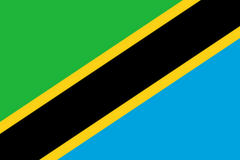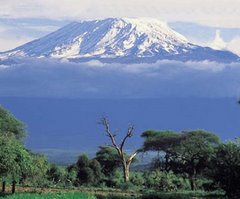February 2008
Daniel Said Dar es Salaam
While the Tanzania government is investigating and tracing the US$131 million External Payment Arrears (EPA) funds which were stolen from the Bank of Tanzania (BoT), it's now clear that five major banks colluded and participated in money laundering.
The banks, both local and international, are hiding behind the letters of BoT confirming the transfers to be legitimate, but they violated their own internal code of conduct and international financing regulations.
Banking experts have it that the government should charge major banks with money laundering, capital flight by opening offshore accounts for EPA companies, shareholders and for causing great economic harm with the transactions, increasing inflation and causing the shilling to devalue 30% in four months due to illegal buying of the US dollar from the markets.
They urge the Tanzanian government to report such banks to the International Monetary Fund as well as central banks in their own countries.
Following this discovery, Mr. Juma Reli, the BoT deputy governor, told East African Business Week last week, "The banks are being investigated in order to establish how they dealt with money transfers." "The Presidential Committee formed by President Jakaya Kikwete will among other things look into how the process of money transfer was done between BoT and other commercial banks," he said.
The Committee's chairman is Mr. Johnson Mwanyika, and is also graced by the Attorney General, Dr. Edward Hosea, Prevention and Control of Corruption Bureau (PCCB) boss, and Mr. Said Mwema the Inspector General of police. The major international banks received billions of shillings from BoT, but they had a prudential duty to know their customers. Failure to do that and giving chance for transfer of funds abroad was illegal and punishable by law.
At the centre of controversy was the fact that since most companies were not even open for a few months and some were not even companies but simple business names, it should have raised suspicions from the bank's managing directors and their Internal Credit managers.
Such volumes of transactions can only be done with an approval of the banks' managing directors.
East African Business Week can reveal that some banks confirmed with BoT when recipients came to collect funds in cash from those banks. BoT confirmed such letters but nevertheless, banks remained in violation of national financial regulations by changing Tanzania shillings into US dollars and opening more accounts at branches for the same recipients to deposit the same cash.
A source from one of the banks told East African Business Week last week that since the amount of US dollars available in the market is limited, and EPA culprits were looking for US dollars, banks requested and received millions of dollars from BoT for the same EPA funds to change into dollars. Large funds were transferred to many accounts off shore.
It's estimated that about 70% of the $131million swindled from the EPA account is starched in foreign banks. The remaining 30% was used to buy plots of land in prime areas in Dar es Salaam city, houses, cars and other fixed assets. He said in order to ease the deal, banks coordinated with forex bureaus by giving out cash to do transfer because bureaus do not have funds of this type.
In some instances, an international banks opened off-shore accounts for EPA culprits and sent funds through such forex bureaus. "About four foreign banks in Dar Salaam managed to transfer over $25 million. One of them was a direct recipient of EPA funds through shareholding in one company," he said adding that one international bank set up an office for the private banking arm in the bank premises and later at an international hotel to serve such clients thus causing capital flights.
In Tanzania, US dollars are only accessible to people and companies involved in the import trade against invoices, but major banks continued to give US dollars to EPA culprits against these regulations. Most surprising, the source said, is the fact that even when the government ordered that accounts of these companies be attached, the banks continued operating and holding accounts for the same shareholders in different names and transferring funds into their associate companies.
"In some instances, the banks informed the shareholders to draw cash quickly or assisted in transfers while knowing President Jakaya Kikwete had ordered the investigation and possible prosecution of the same people," he said.
Recently, a special audit by Messrs Ernst & Young discovered that more than $131 million was improperly paid to 22 local firms through the BoT's External Payment Arrears (EPA) Account.
It discovered that payments to firms were made without observing rules and procedure and in some cases fake documents and forged records were used.
Although president Kikwete has directed that further investigations be conducted in order to get more evidence for possible prosecution and that all culprits accounts be frozen, a lot of funds are said to have been transferred abroad mainly to Dubai and Swiss banks.
Subscribe to:
Post Comments (Atom)



No comments:
Post a Comment